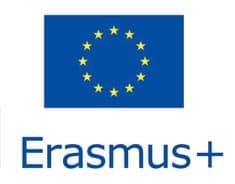Call for proposals: Strategic Partnerships for Youth
Introduction-General Information
Co-operation for Innovation and Exchange of Good Practices is all about enabling organisations to work together in order to improve their provision for learners and share innovative practices.
Under Key Action 2 organisations can apply for funding to work in partnership with organisations from other participating countries.
Key Action 2 covers the five fields of Higher Education, vocational education and training, schools, adult education and youth. Target groups and activities vary by field. Young people benefitting from the projects will learn about social entrepreneurship and be encouraged to take a more active role in their local economy and society.
Key Action 2 is divided into two main types of activity: decentralized activities and centralized activities. The decentralized activities include the strategic partnerships in all fields.
Objectives of Strategic Partnerships
- enhancing the quality and relevance of the learning offer in education, training and youth work by developing new and innovative approaches and supporting the dissemination of best practices; fostering the provision and the assessment of key-competences, including basic skills and transversal skills particularly entrepreneurship, languages and digital skills;
- increasing labour market relevance of learning provision and qualifications and reinforcing links between education, training or the youth fields with the world of work;
- promoting take-up of innovative practices in education, training and youth by supporting personalised learning approaches, collaborative learning and critical thinking, strategic use of Information and Communication Technologies (ICT), open educational resources (OER), open and flexible learning, virtual mobility and other innovative learning methods;
- promoting structured inter-regional and cross-border cooperation: enhancing the commitment of local and regional public authorities in the qualitative development of the education, training and youth fields;
- enhancing the professional development of those working or active in the education, training and youth fields by innovating and increasing the quality and range of initial and continuing training, including new pedagogies, ICT-based methodologies and use of OER;
- improving the capacities of organisations active in the fields of education, training and youth, notably in the areas of strategic development, organisational management, leadership, quality of learning provision, internationalisation, equity and inclusion, qualitative and targeted activities for specific groups;
- fostering equity and inclusion in education, training and youth, to enable quality learning for all as well as to prevent drop-out and promote participation of disadvantaged groups in society;
- promote entrepreneurship education to develop active citizenship, employability and new business creation (including social entrepreneurship), supporting future learning and career paths for individuals in line with their personal and professional development;
- increasing participation in learning and employability by developing quality career guidance, counselling and support services;
- facilitating the transition of learners through different levels and types of formal/non-formal education and training through the use of European reference tools for the recognition, validation and transparency of competences and qualifications.
Eligibility
Strategic Partnerships in the youth field must include a minimum of two partners from two different Programme Countries, including the applicant organisation. The number of partners and funding will vary depending on the project’s aims and activities
Participating organisations: Youth organisations based in the EU and outside the EU as well as other stakeholders with an active interest in youth issues. Informal groups of young people are also eligibile to apply for funding for transnational youth initiative under this Action. 7,000 strategic partnership projects are expected to benefit in the period 2014-2020.
Financing
The budget for the field of Youth in Erasmus Plus programme is estimated at 14.77 million euro for the whole 7 years of duration of the programme.
Strategic Partnerships can receive a maximum of 150,000 euro in funding per year.
The reimbursement is made on the basis of unit costs.
Calendary
Applications must be submitted on 1 October 2014 for projects starting between 1 February and 30 September 2015.
Additional Information




